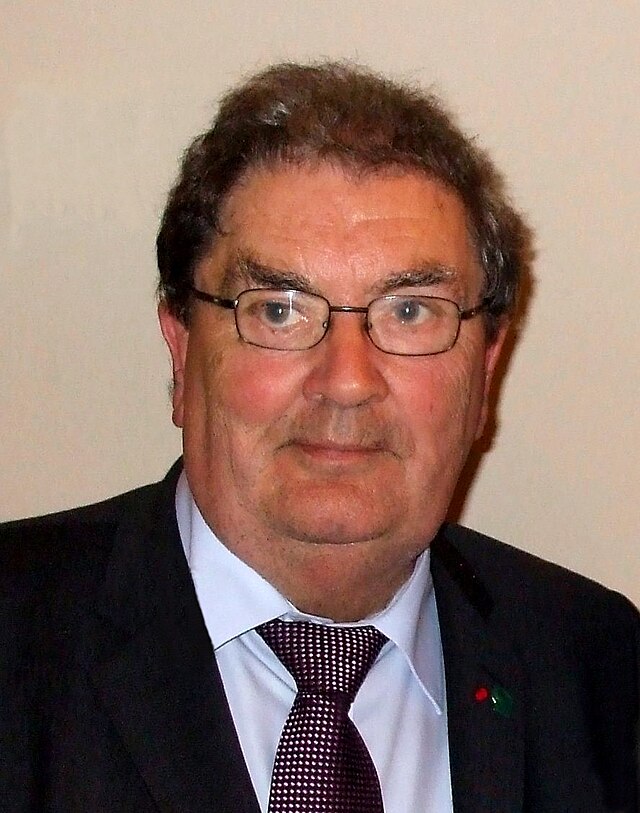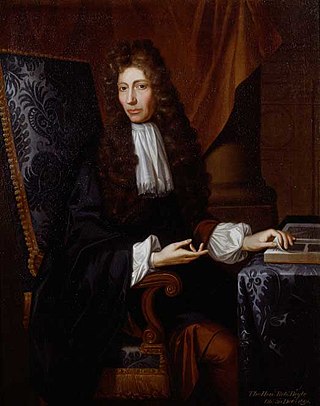Loading AI tools
Television series From Wikipedia, the free encyclopedia
Ireland's Greatest was a 2010 public poll by Raidió Teilifís Éireann (RTÉ) and associated television documentary series broadcast on RTÉ One, where viewers voted to choose the greatest person in the history of Ireland.[1] The concept was based on the BBC series 100 Greatest Britons.[2] The winner was John Hume.[3]








To draw up an initial shortlist of 40 names, RTÉ commissioned an opinion poll of 1,000 members of the public,[4] carried out by Ipsos MRBI in late 2009.[1][5] The shortlist was published on 22 March 2010 on the RTÉ.ie website,[6] and readers could vote for their preferred person for 12 days, ending on 2 April;[1] one vote per IP address was permitted.[4] The top ten was announced on The Tubridy Show with Myles Dungan on 5 April 2010.[7] The top five was established at this point,[4] but not publicised until RTÉ's programming schedule for autumn 2010 was unveiled in August.[8] Each of the top five was profiled in a one-hour documentary programme broadcast in autumn 2010 and presented by a public figure advocating that person's claim to the title of "greatest person". Viewers voted for the overall winner, announced on The Late Late Show on 22 October 2010.[3][7]
The ranking of the top five, and the advocates who each present a one-hour documentary about one of them, were as follows:[3][9]
The following people were shortlisted:[1][3][7][8]
| Rank | Name | Born | Died | Field(s) |
|---|---|---|---|---|
| 1 | John Hume | 1937 | 2020 | Politics |
| 2 | Michael Collins | 1890 | 1922 | Politics |
| 3 | Mary Robinson | 1944 | Politics | |
| 4 | James Connolly | 1868 | 1916 | Politics |
| 5 | Bono | 1960 | Music, charity | |
| 6–10 | Noël Browne | 1915 | 1997 | Politics |
| 6–10 | Stephen Gately | 1976 | 2009 | Music |
| 6–10 | Phil Lynott | 1951 | 1986 | Music |
| 6–10 | Pádraig Pearse | 1879 | 1916 | Politics |
| 6–10 | Adi Roche | 1955 | Charity | |
| 11–40 | Éamon de Valera | 1882 | 1975 | Politics |
| 11–40 | Joe Dolan | 1939 | 2007 | Music |
| 11–40 | Ronnie Drew | 1934 | 2008 | Music |
| 11–40 | Colin Farrell | 1976 | Acting | |
| 11–40 | Garret FitzGerald | 1926 | 2011 | Politics |
| 11–40 | Bob Geldof | 1951 | Charity, music | |
| 11–40 | Pádraig Harrington | 1971 | Sport | |
| 11–40 | Charles Haughey | 1925 | 2006 | Politics |
| 11–40 | Séamus Heaney | 1939 | 2013 | Literature |
| 11–40 | James Joyce | 1882 | 1941 | Literature |
| 11–40 | John B. Keane | 1928 | 2002 | Literature |
| 11–40 | Roy Keane | 1971 | Sport | |
| 11–40 | Ronan Keating | 1977 | Music | |
| 11–40 | Seán Lemass | 1899 | 1971 | Politics |
| 11–40 | Jack Lynch | 1917 | 1999 | Politics, sport |
| 11–40 | Paul McGrath | 1959 | Sport | |
| 11–40 | Christy Moore | 1945 | Music | |
| 11–40 | Liam Neeson | 1952 | Acting | |
| 11–40 | Daniel O'Connell | 1775 | 1847 | Politics |
| 11–40 | Daniel O'Donnell | 1961 | Music | |
| 11–40 | Brian O'Driscoll | 1979 | Sport | |
| 11–40 | Michael O'Leary | 1961 | Business | |
| 11–40 | John O'Shea | 1944 | Charity | |
| 11–40 | Sonia O'Sullivan | 1969 | Sport | |
| 11–40 | Charles Stewart Parnell | 1846 | 1891 | Politics |
| 11–40 | Christy Ring | 1920 | 1979 | Sport |
| 11–40 | Theobald Wolfe Tone | 1763 | 1798 | Politics |
| 11–40 | Louis Walsh | 1952 | Music manager | |
| 11–40 | Oscar Wilde | 1854 | 1900 | Literature |
| 11–40 | William Butler Yeats | 1865 | 1939 | Literature |
The list of nominees for Ireland's Greatest was criticised by historians Diarmuid Ferriter,[10] Tim Pat Coogan, and Maurice Manning,[5] and Irish Times columnist Noel Whelan.[11] They said that the list was skewed towards recent times, and that many nominees were celebrities from popular culture or sport rather than people who had made a lasting contribution to society; Ferriter said "It is going to be very hard to take this seriously for historians".[10][11] Ryan Tubridy, who presents The Late Late Show, commented, "There are some really silly names in there. It's contentious to say the least".[4] Liam Dolan in the Sunday Independent called it "a shambolic litany of well-intentioned do-gooders and talented non-entities".[12] People whose inclusion attracted criticism included Stephen Gately, Louis Walsh and Daniel O'Donnell.[2] The Belfast Telegraph noted the absence of Van Morrison and George Best;[2] other absentees noted were Michael Davitt, John McCormack,[5] William Rowan Hamilton, Lady Gregory, and Samuel Beckett.[12] Ken Sweeney in the Irish Independent criticised the ranking of Stephen Gately ahead of Éamon de Valera.[4] The dearth of women —3 out of 40— was also noted.[2][4][7] Website science.ie responded to the lack of scientists on the RTÉ shortlist by organising its own poll for Ireland's greatest scientist, won by Robert Boyle.[13]
In 2005, Marian Finucane's radio show organised a similar poll to find Ireland's greatest woman. There were some claims of ballot-stuffing.[10] The top ten were:[14]
In September 2009, RTÉ ran an online poll in sponsored by Paddy Power to nominate Ireland's greatest sportsperson.[16] A shortlist of 32 names was selected by a panel of experts.[17] The top ten was announced on 31 December 2009:[18]
The other 22 were:[17] D. J. Carey, Eamonn Coghlan, Ronnie Delany, Ken Doherty, Mike Gibson, Johnny Giles, Kevin Heffernan, Alex Higgins, Jack Kyle, Eddie Macken, Tony McCoy, Barry McGuigan, Aidan O'Brien, Mick O'Connell, Christy O'Connor Snr, Mick O'Dwyer, Jack O'Shea, Mary Peters, Stephen Roche, Henry Shefflin, Michelle Smith, and John Treacy.
In 2010, the website www.sfi.ie selected its Top 10 Irish scientists, in response to the exclusion of scientists from the RTÉ longlist.
Other countries have produced similar shows; see Greatest Britons spin-offs
Seamless Wikipedia browsing. On steroids.
Every time you click a link to Wikipedia, Wiktionary or Wikiquote in your browser's search results, it will show the modern Wikiwand interface.
Wikiwand extension is a five stars, simple, with minimum permission required to keep your browsing private, safe and transparent.